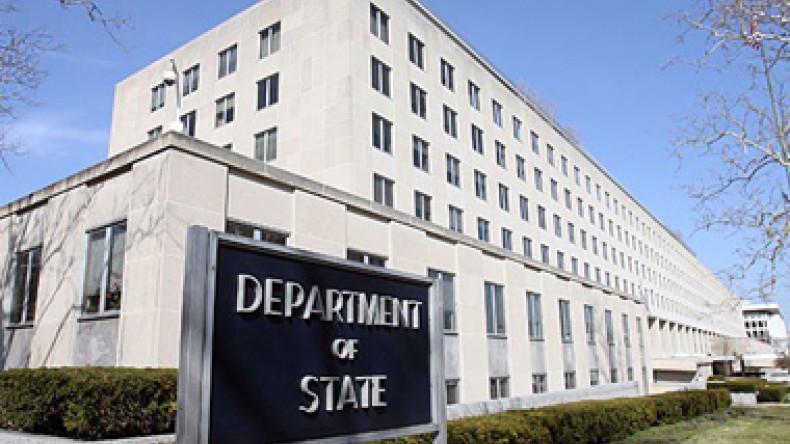
US Department of State: Trafficking and forced begging of children widespread in Azerbaijan with authorities remaining corrupt
On 25 June 2015, the US Secretary of State John Kerry introduced the Country Reports on Human Rights Practices for 2014 where the Department of State analyses the human rights situation in different spheres in Azerbaijan, among others. The report is published on the US Department of State website.
The Department of State notes: Although the constitution provides citizens the ability to change their government through free and fair elections, the government continued to restrict this ability by interfering in the electoral process.
The October 2013 presidential election fell short of international standards. In their joint statement of preliminary findings and conclusions on the election the OSCE’s Office for Democratic Institutions and Human Rights (ODIHR) and the OSCE Parliamentary Assembly highlighted serious shortcomings and procedural irregularities. Prior to election day, the government maintained a repressive political environment. It interfered with the media and civil society routinely, sometimes violently interrupted peaceful rallies and meetings and jailed a number of opposition and youth activists.
According to the Department of State report, opposition members were more likely to experience official harassment and arbitrary arrest and detention than other citizens. There were also indications that authorities pressured opposition party members to renounce their membership by offering incentives such as early release from jail. Opposition parties continued to have difficulty renting office space, reportedly because landlords were afraid of official retaliation. On March 3, 2014, an explosion destroyed the office of the Popular Front Party, whose chairman, Ali Kerimli, accused authorities of deliberately trying to force the party from its office.
There continued to be reports that the families of several high-level officials were the beneficiaries of monopolies in most of the non-oil sectors of the economy. There were continued reports that authorities targeted some human rights defenders and journalists seeking to combat government corruption. Low wages continued to contribute to police corruption. There was widespread belief that one could pay a bribe for a waiver of military service, which is universal for men between ages 18 and 35, the Department of State notes.
In the section devoted to the worker rights, the Department of State notes that there were categories of workers prohibited from striking. Striking workers who disrupt public transportation could be sentenced to up to three years in prison. The overwhelming majority of trade unions remained tightly linked to the government, with the exception of some journalists’ unions. Both local and international NGOs claimed that workers in most industries were largely unaware of their rights and afraid of retribution if they initiated complaints. This was especially true for workers in the public sector.
According to the report, migrant workers were at times subjected to conditions of forced labor in the construction industry. Forced begging of children was a problem, and domestic servitude of Filipina trafficking victims was an emerging problem. Employment discrimination remained a problem.
Although the law sets health and safety standards, employers widely ignored them. Violations of acceptable conditions of work in the construction and oil and gas sectors remained problematic. According to the Oil Workers Rights Defense Council, as of November 1, 2014, there were 19 deaths and nine complaints of on-the-job injuries in the oil and gas sector. The Azerbaijan Trade Unions Confederation (ATUC) reported 52 industrial injuries and 24 deaths in 2012, with 10 of the deaths in the oil and energy sectors. A local NGO estimated that there were 82 industrial deaths, of which 36 were in construction.
Related:
US Department of State: Sexual abuse widespread in Azerbaijani army, tortures in prisons, foreigners’ communications monitored
GRECO: President and members of the executive of Azerbaijan exercise considerable influence on legislature and judiciary
Newsfeed
Videos






























